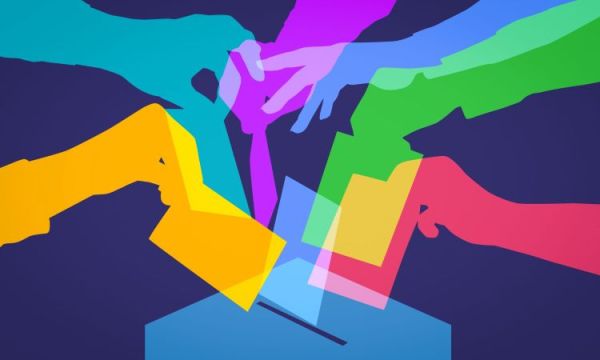GREAT CITIES ARE BUILT KEEPING TAXPAYERS IN MIND.
Taxpayers in India need to wake up!!!
How many times in a day do you encounter bad roads, power cuts, poor quality water or the lack of it, unresponsive police stations, lack of fire stations close by, poor public transport and the list can go on for miles.
Why do we vote politicians into office??? (Or do the taxpayers really???)
In India today there are three kinds of people:
1. The Invincibles:
The Super rich or the top 0.01% who lobby to create laws to suit them and they are invincible. Their games are both local and global and what drives them is sheer passion of numbers of net-worth and their ratings on the Forbes list. Most of our economy is controlled by these giants and its true for any country. For these people, infrastructure of any kind is a great marketing tool to grow their companies.
(Imagine…the top 100 global companies control 40% of the Global GDP.)
2. The pillar class
This is the 10 Crores middle class and upper middle class who actually are the pillars of the country and they account for most of the taxes collected by the government. (Indian taxpayers are about 6 Crores of the 140 Crores people and almost 82 Crore people are involved in the agri-economy). These are the worker ants who wake up diligently in the morning, follow a script and cut and paste their life day after day. They pay their taxes diligently and get nothing in return. (They actually don’t get harassed on a day to day basis which is what they pay their taxes for. Like a Hafta! )
3. The voting class
India had 81.50 Crores voters in all for the 2014 elections up by a 10 Crores from the previous election in 2009. By this yardstick the 2019 elections will be approximately 90 Crores voters making it the largest election on the planet. Over 53.80 Crores (66%) came out and voted in 2014. As metro’s are growing larger with better infrastructure and more opportunities, the observation is that the current urban population has grown to 34% as of 2018. While the urban voting is lesser than the rural voting, considering that of the 90 Crore voters some 7 Crores form the middle class, the balance voting population are the bulk of the voters who form “The voting class” as their votes are the ones that really matter over all others. This section of society is woken up every 5 years by the politicians to only come out and vote. These people elect our leaders who run the country (or don’t). This large audience are key for the politicians who bend backwards during elections to make sure that those votes are bagged. Promises are made but rarely kept. Zero education. Zero infrastructure. They are literally kept in the dark by aiding & abetting a culture of freebies, so that they fuel the victories of politicians who are corrupt, have a range of court cases against them and have no interest in the cities and their taxpayers.
Master-planning of cities which generate the revenues.
Cities are an important sources of revenue to fuel the country. About 47 Crore people live in urban cities in India with the top 20 cities alone accounting for over 15 Crore people. However, hard working taxpayers’ money is being used to fund schemes which ensure that the voting class does not come out to work. Every major city in India is badly planned. With a highly populous country, we should easily find people to do various kinds of work. Yet, our police is understaffed, courts are clogged, not enough firemen and the list goes on.
Proper master-planning requires every area in a city to have the following:
Police stations, Hospitals, Courts, Banks, Registrar office, parks & playgrounds, Fire Department, schools, convention centres, civic office (garbage/roads/maintenance etc), retail district, utilities offices (water/power/gas/telephone) , Transport (Bus/Train/Taxi).
Depending on the city type and revenues from the city, all these should be available for a population of 25000-50000 and has to be mandatory in the city planning. However, every plan by the government is made to grab peoples lands in the guise of some infrastructure project or the other and then change the land use for monetary benefits. Mumbai, NCR and Bangalore has seen so many such acts where lands have been zoned as park and later acquired for pittance and land use being changed to residential/commercial for 20x – 30x returns. This is just one of many such acts where people have lost lands to sharks through the government.
Taxpayers should come together to demand basic public services. After all, there has to be a reason to pay all these taxes. Shouldn’t there be a balance sheet displayed to the public by the government??? After all, its their money which fuels the economy and they have every right to know where each rupee went and question the same.
Take the courts for example. Today there are over 40 million cases pending and people have to wait years on end for basic justice. If every city had say about 5000-10000 judges, would there not be expedited justice?
Small police stations should be available in close proximity with every key area having a large central police station. Computerisation should be pushed so that people can automatically register a complaint without being harassed. One should be able to this this on a mobile App especially in tech cities like Bangalore which touts itself as the silicon valley of India. The police should know that taxpayers pay their salaries and hence they are bound to be more responsive.
Our corporations should create a single agency which manages the roads, drains, underground gas/telephone/cable lines etc so that when a road is built, it doesn’t get dug up and destroyed by some other agency in an uncoordinated effort, which is a huge cost to the taxpayer.
I believe the present PM has the greatest opportunity to implement these frameworks across the country as a national policy. I, for one, would be extremely happy if every city had 500 courts so that people get access to justice and not wait endlessly in one court and be treated like cattle.
With so many people in India, it is important to increase the number of offices (courts, corporation offices, police stations) so that with this the corruption will reduce. For example, one move the government in Karnataka made was allow registration of a properties in Bangalore in any of the designated sub registrar offices thereby reducing corruption emanating from having only one sub registrar office for each region. Earlier, this was not the case, as one would have to register a property in the sub-registrar of that locality. Now, if a sub registrar of a locality is corrupt, its now possible to go to another where the registration can take place if not without bribe, at a lesser one perhaps. This change has helped to substantially decrease corruption. Increasing the number of offices will in my opinion reduce the corruption and improve efficiencies.
Finally, for India to have 50 great cities, the PM has to take cognisance of master-planning before it is too late. Opportunities like Navi Mumbai, Gurgaon etc have all been lost and the same mistake will trickle down to rapidly to growing cities like Bangalore.
I know its idealistic. One voice has no power. It is the collective voice, which ask the right questions, which will eventually get heard!




Comments
Post a Comment